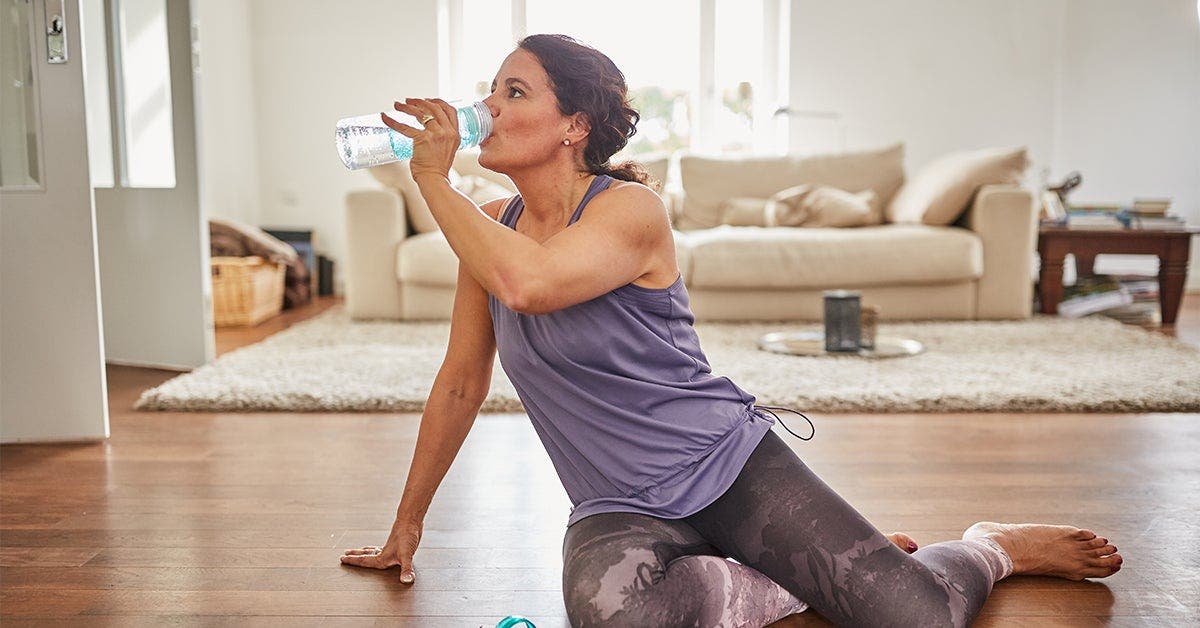Hydration 101


Hydration, hydration, hydration. We hear all the time about how we all should be drinking more water, how many of us are dehydrated without even knowing it.
And there’s another thing we’ve often been told – that drinking water helps us lose weight. But is that true?
Here’s the thing – technically, just drinking more water doesn’t help you lose weight. But, drinking more water often means we’re replacing other beverages – such as sugary drinks – with water, and doing that can aid in weight loss.
According to the 2015-2020 Dietary Guidelines for Americans, 47 per cent of all added sugar consumed by the U.S. population is in the form of beverages (i.e., soft drinks, fruit drinks, sweetened coffee and tea, energy drinks, alcoholic beverages, and flavoured waters). And global data supports this trend, with research indicating that sugar sweetened beverages account for a significant portion of added sugar consumption worldwide. So replacing sodas and energy drinks with water is definitely a good bet.
Drinking more water is also just generally good for your overall health. Water is essential for life and health because all of the tissues and organs within the human body require water to maintain their structure and function. Water comprises from 75 per cent body weight in infants to 55 per cent in older adults.
Adequate Hydration
So, what does adequate hydration actually look like? There’s the old adage of eight glasses a day, but that doesn’t account for the size of the glass.
Here’s what we know: Most people can meet their hydration requirements by drinking nine to 12 cups (70 to 96 ounces) of water (or other beverages) daily. The Institute of Medicine recommends that women consume 11.5 cups (or 2.7 litres) and men consume 15.5 cups (3.7 litres) of total water (that’s from both food and beverage) daily. It is estimated that about 20 per cent of the “total water” we consume comes from food – this leaves 80 per cent or about nine cups for women or 12 cups for men from beverages.
While this is a general guideline, individual fluid needs may vary. Fluid needs are individual and are impacted by a variety of factors – height, weight, age, activity level, environment and more all contribute to fluid needs. For instance, height, weight, increased physical activity and warm climates all increase fluid needs, and a person’s fluid needs can even vary on a daily basis.
Tips for Drinking More Water
- Track your water intake in the WeightWatchers app.
- Add cucumber slices or fresh fruit, like berries, slices of citrus or watermelon, to flat or sparkling water for a boost of flavour.
- Lean on fruits and vegetables, which are naturally higher in water and can contribute to your daily fluid intake.
- If you find yourself forgetting to drink throughout the day, set calendar reminders every couple hours to keep hydration top of mind.
- Keep your cup, glass or bottle nearby throughout the day.
- Use piggybacking to make a new water-drinking habit. Select something that you do regularly (e.g. putting your toothbrush in the stand after brushing your teeth or getting out of bed) and use it as a cue to drink a glass of water every time you do it.
